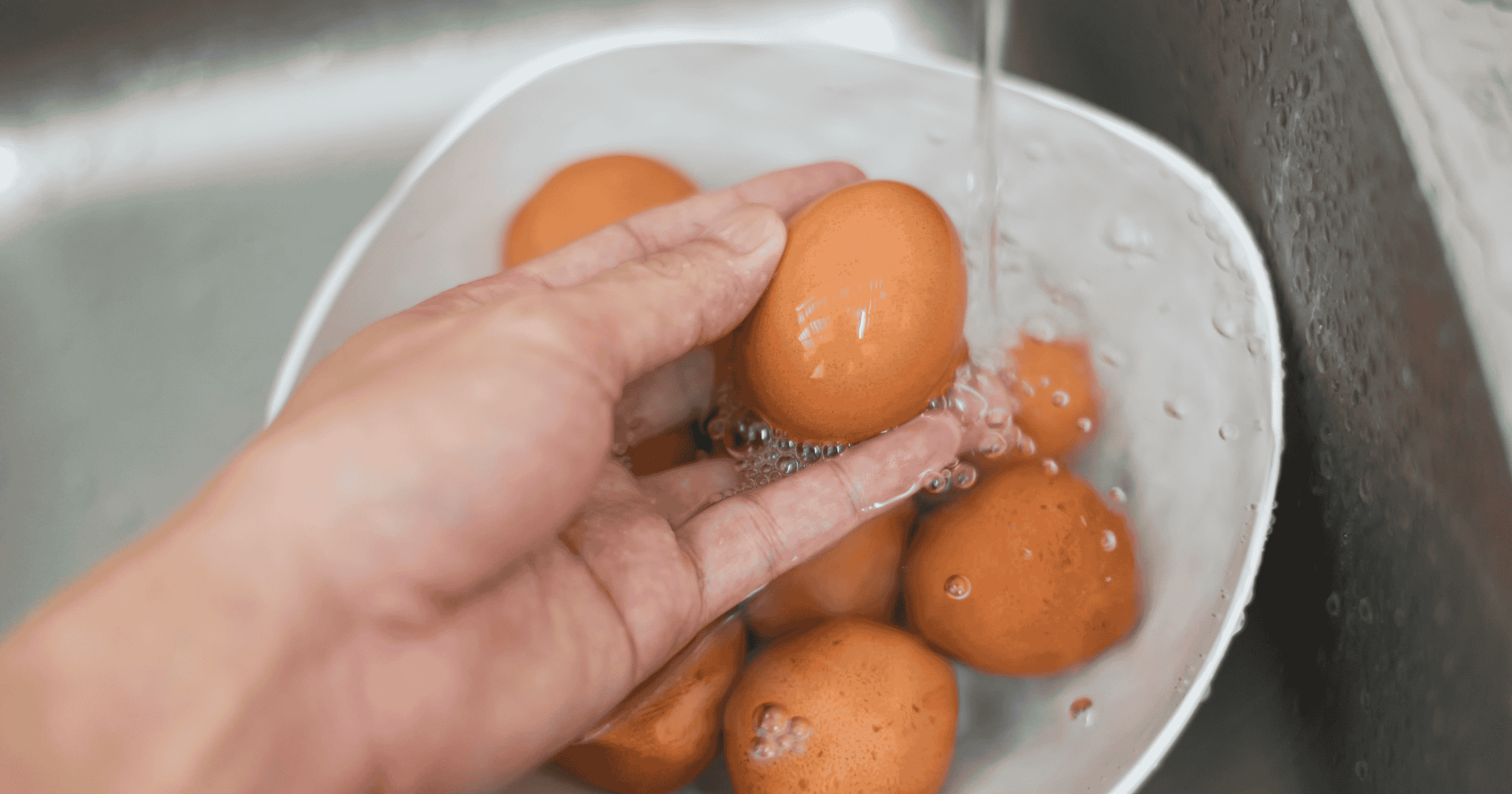
08 Apr Best Way to Clean Farm Eggs in Lagos Without Damaging Them
If you’re raising chickens in Lagos or buying fresh farm eggs from a local poultry farm, you’ve probably faced this question:
“Should I clean my farm eggs—and how do I do it without damaging them?”
Great question.
Unlike store-bought eggs, farm-fresh eggs often come with bits of dirt, feathers, or chicken poop stuck to the shell. While it’s tempting to scrub them squeaky clean, doing it the wrong way can shorten their shelf life or even invite bacteria inside.
This article will walk you through the best way to clean farm eggs in Lagos, explain when not to clean them, and how to safely store them afterward—especially in Nigeria’s warm weather.
Let’s crack this open!
Why Egg Cleaning Needs to Be Done Carefully
Every egg comes with a natural protective layer called the bloom (or cuticle). It’s a thin, invisible coating that seals the pores of the eggshell, keeping out dirt and harmful bacteria like salmonella.
When you clean eggs the wrong way—especially with water—you strip off that bloom, leaving the egg vulnerable to contamination and spoilage.
So, in most cases, less is more when it comes to cleaning eggs.
Do You Need to Wash Farm Eggs at All?
Here’s the short answer:
✅ Only clean eggs when you need to use or sell them
❌ Don’t wash eggs if you’re planning to store them unrefrigerated for long
If the eggs are fairly clean and you’re storing them at room temperature (common in Nigeria), it’s best not to wash them at all.
Lagos Realities: Why Farm Eggs Might Be Dirtier
In urban and peri-urban parts of Lagos, many poultry farms operate in compact or semi-intensive environments, which can make eggs dirtier due to:
- Dusty or muddy chicken runs
- Unclean laying boxes
- Frequent rain during the wet season
- Lack of egg collection routines
But don’t worry—cleaning them safely and correctly is possible.
Best Way to Clean Farm Eggs in Lagos (Step-by-Step)
🥚 Method 1: Dry Cleaning (Preferred for Storage)
This is the safest method if you don’t plan to refrigerate the eggs immediately.
What you need:
- A dry scrubbing pad or soft brush
- Dry cloth or sandpaper
- Clean egg tray or basket
Steps:
- Gently rub the egg shell with a dry brush or rough cloth.
- Remove dirt, dried droppings, or feathers.
- Avoid pressing too hard or cracking the shell.
- Store eggs pointy side down in a cool place.
✅ This method keeps the bloom intact and is ideal if you’ll be storing eggs without a fridge.
🧼 Method 2: Wet Cleaning (For Immediate Use or Refrigeration)
If eggs are very dirty or you plan to use/sell them the same day, wet washing is okay—if done properly.
What you need:
- Clean bowl of warm water (not hot, not cold)
- Mild, unscented detergent or vinegar (optional)
- Soft cloth or sponge
- Clean towel
Steps:
- Use warm water only. The water must be warmer than the egg (to prevent bacteria from being pulled inside).
- Optional: Add a drop of mild soap or a tablespoon of vinegar.
- Gently scrub the shell with a sponge or cloth.
- Rinse with clean warm water.
- Pat dry with a clean towel.
- Store immediately in the fridge, if possible.
⚠️ Once washed, eggs must be refrigerated. Their bloom is gone.
Bonus Tips: Keeping Eggs Clean From the Start
Instead of cleaning dirty eggs all the time, you can reduce how dirty they get with these smart tricks:
🧺 Keep Nesting Boxes Clean
- Change bedding regularly.
- Use dry leaves, sawdust, or straw.
- Clean droppings daily if possible.
🐔 Collect Eggs Frequently
- Collect at least twice a day—once in the morning and again in the afternoon.
- The less time eggs spend in the coop, the cleaner they’ll be.
🧹 Trim Hen Nails and Perches
- Dirty, overgrown nails and messy perches contribute to dirtier eggs.
- Trim nails and clean roosting areas weekly.
How Not to Clean Farm Eggs
Here’s what to avoid completely:
🚫 Don’t use cold water
🚫 Don’t soak eggs
🚫 Don’t use scented detergents or harsh chemicals
🚫 Don’t scrub too hard or crack the shells
🚫 Don’t wash and leave at room temperature—they’ll spoil faster
How to Store Cleaned Eggs in Lagos
After cleaning, storage matters even more.
| Egg Type | Storage Advice | Shelf Life |
|---|---|---|
| Unwashed farm eggs | Cool, shaded shelf | 2–3 weeks |
| Washed eggs | Refrigerator | 4–6 weeks |
| Oil-coated eggs | Cool place or fridge (if cleaned) | 3–4 weeks |
✅ Always store pointy side down
✅ Don’t stack too many trays together in heat
✅ Avoid plastic bags—they trap moisture
For Poultry Farmers and Egg Sellers in Lagos
If you sell eggs locally or through farm delivery, consider these:
- Clean only lightly, just enough to make them presentable
- Use clean, dry trays or baskets with cushioning
- Educate your customers on how to store farm eggs without refrigeration
- Offer eggs by quality—unwashed for longer shelf life, washed for ready use
Conclusion
The best way to clean farm eggs in Lagos depends on how soon you plan to use or sell them. In most cases, a simple dry cleaning method is the safest and most effective, especially in Nigeria’s warm climate where refrigeration isn’t always reliable.
If you must wash, make sure you use warm water, dry thoroughly, and store in the fridge immediately.
Keeping eggs clean starts from the coop. But if they come out dirty, now you know exactly how to handle them the right way—Lagos style.
Got a poultry tip or egg cleaning hack that works for you? Share in the comments—we’d love to hear from other smart Nigerian farmers!
Recent posts
- How to Make Akara and Moi Moi with Farm Eggs | Delicious Nigerian Recipes
- How to Make Perfect Omelettes with Farm Eggs | Easy, Delicious Recipe
- Easy Egg Salad Recipes with Farm Fresh Eggs | Delicious & Nutritious
- Deviled Eggs with Local Nigerian Ingredients | Easy Recipe
- Delicious Nigerian Dishes Made with Eggs | Tasty Egg Recipes
Your cart
Your cart is currently empty!








No Comments